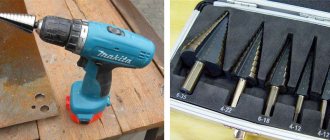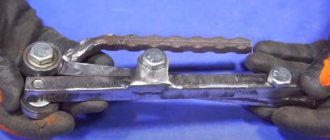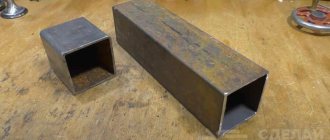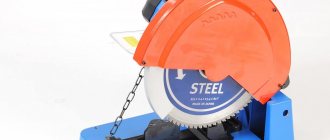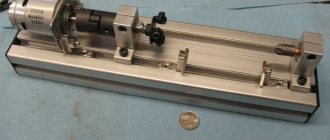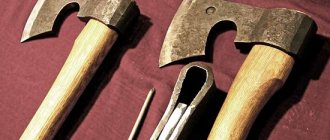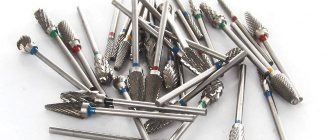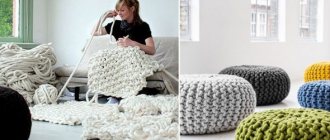09.06.2019
Today's equipment and technical equipment helps to create aesthetic and versatile paintings both with your own hands and with the help of special devices. In the article we will analyze what metal engraving is, how and with what it is done, types, techniques and methods of applying drawings. This method transforms an everyday item into a striking and original creation that makes an excellent gift or keepsake.
What is the procedure
Engraving is one of the ancient methods of finishing metal surfaces. Initially, it was used to add sophistication to household items, after which things were passed on from generation to generation. Despite the fact that this is an ancient art, today it is actively used for both personal and public purposes (decorating streets, city monuments, etc.).
Previously, painting was carried out exclusively by hand, without the help of special equipment. Now, for this purpose, various devices and devices are used that make it possible to create any pattern, inscription or picture. Depending on what is used to engrave on metal and how exactly to engrave (choice of technique), different results are obtained. Therefore, it is worth familiarizing yourself with the available methods, since each of them has its own characteristics.
Incisive engraving
Photo 5. Master's kit is a set of tools and materials that is always at hand for a professional engraver.
There is a type of hand engraving, which is usually called incisor engraving. It is performed using special cutters - gravers (photo No. 5). There can be different numbers of gravers. Some allow you to make the finest lines, others allow you to make several parallel cuts at the same time. Experienced engravers use this tool. Stichels need to be able to be sharpened correctly and brought to working condition. Beginner engravers may not be able to do this. Do-it-yourself engraving, especially on metal, is an ancient art. Cold steel, and then firearms, decorated in this way are considered especially valuable and of high quality. Absolutely anyone can try engraving on small objects like cutlery and knives at home.
Description of technologies
The rapid development of this craft has led to the fact that there are several different ways of applying an image to a metal surface. If initially only the hands of a master and simple improvised means were used to realize fantasies, today engraving machines and even lasers are used for this.
Manual
This type is often called artistic, since it is extremely difficult to engrave metal by hand. This is a labor-intensive and time-consuming process that requires the master to have special skills, knowledge and patience. To create the required design or inscription, only a cutting steel tool is used - a graver. This is a special cutter for drawing lines and points of various indentations, which are later turned into a picture. Such work is considered exclusive, and therefore is of particular value to people who want to get a unique thing of its kind or a creation by a famous master.
Mechanical
Mechanical engraving on metal is popular because it is particularly durable - it is almost impossible to remove or erase the design. It is realized with a sharply sharpened rotating cutter by cutting material that has an exclusively flat surface. The cutter is located inside the engraving machine, which allows you to obtain three-dimensional and relief designs. The result depends on the depth of penetration of the drill, the use of various cliches (taking into account the characteristics of the cutter) and the skill of the person. The main advantages of this type are:
- Guarantee of high accuracy and obtaining the desired result while achieving the desired realism.
- Long service life. The created drawings do not lose their original appearance even after several decades and under unfavorable external conditions.
- Ability to create three-dimensional images.
A subtype of the mechanical method is the diamond method, which has some differences. In it, the cutter performs striking movements on the surface, as a result of which a certain ornament is formed. After pressing the diamond needle, microscopic dots are formed, due to which the resulting product receives a specific shine. A diamond cutter can cope with even complex tasks, but a perfectly flat surface is a prerequisite.
Sandblasting
This type has another name - abrasive processing. Engraved inscriptions or other images on metal are applied by etching the top layer of the product with sand or other abrasive powdery substances. They are sprayed with a powerful air flow, resulting in a matting effect. The use of special stencils allows you to obtain not only patterns, drawings or inscriptions, but even photographs.
This type of image application requires sandblasting systems, a mask and an air compressor. Most professionals prefer medium-sized closed units because they filter dust. Also, implementing this technology will require a lot of free space, since engraving on metal using the sandblasting method is only possible with an air compressor, which takes up a lot of space and makes a lot of noise.
Laser sublimation
This type involves the use of a color printer, special cartridges, sublimation paper and a heat press for coloring metal materials. To get the desired image, first of all, you need to print it. The resulting transfer is placed on top of the product, after which the latter is exposed to high temperatures, which promote coloring and the transition of substances from a solid to a gaseous state.
Deep laser engraving on metal is characterized by productivity and practicality, which is especially important for business, for example, for souvenirs when applying photographs. It simultaneously combines high speed, mass production, accuracy, low cost and excellent quality. This technique involves the use of a focused laser beam. It allows you to adjust the laser power, which gives the image a different tonality and relief. In addition, the resulting pattern is preserved for many years and does not deform under the influence of water or moisture.
Different laser powers for metal engraving allow you to create sophisticated and complex patterns that have the required depth. Laser engraving involves removing the outer layer of the metal surface, which is important to consider during the work process. Laser contour engraving stands out separately, implying the drawing of exclusively contours. In most cases, this technique is used for processing coins, awards and other souvenirs. The main advantages of the laser are:
- Ability to work on finished products.
- Unlimited number of processed copies.
- Low price of service and excellent quality.
- There is no need to install supports and foundations.
- The ability to apply sketches even to hard-to-reach parts of the product.
- High precision, thanks to which the products are distinguished by realism and excellent reproduction of even small patterns.
Let's start experiments
Decorative patterns using the engraving method are applied to plates, knives, pistols, sabers, medals, cups, and apartment numbers. All patterns and inscriptions are preserved almost forever and do not require expensive and rare consumables or special equipment for execution. The design can be applied to steel, aluminum, brass, copper, and metal alloys. The method does not pollute the environment. It is impossible to wash off or erase the drawing using conventional methods and means.
It is recommended to start by applying simple inscriptions on cutlery. Relatives and friends may appreciate such a gift. You need to prepare for work (photo No. 4).
Photo 2. Engraved wedding rings, the wedding date and the initials of the bride and groom are usually written on them.
- Nail polish that my wife doesn't really need.
- Toothpick with sharp tips.
- You may need an ordinary match.
- Salt.
- Charger for car battery. It can be successfully replaced by charging from a mobile phone.
- Glass or porcelain dishes in the form of a glass, mug or jar.
- Nail polish remover.
The work is done in this order:
- Take a spoon and cover it with nail polish. The entire surface must be varnished very carefully, otherwise there will be defects in the work.
- Using a match or toothpick, a pattern, name, or other image is scratched through the layer of varnish.
- Pour 2 tablespoons of salt into a glass glass or jar. Some people add a spoonful of salt and a spoonful of soda.
- Water is poured into the vessel, the salt is thoroughly stirred until completely dissolved.
- We connect a car or other charger with the positive terminal to the product being processed, and the negative terminal to any metal object that will be placed in a vessel with water. This item could be another spoon, a piece of thick wire, or a metal plate.
- The rectifier is connected to the network. Almost immediately, an etching reaction will begin in the glass with darkening of the liquid. It lasts 1-5 minutes. It depends on the magnitude of the current. The product is checked periodically. After reaching the desired etching depth, it is removed from the container.
- The varnish is washed off with nail polish remover. The result should look something like this (photo No. 3).
Photo 3. Personalized engraved spoons and, interestingly, engraving can be done on various metal objects in a simple home environment.
In this way you can process any metal objects at home. If you make an inscription with varnish, it will be convex on the etched background. For better quality work, it is recommended to purchase a special tool - an engraver. It can operate from the electrical network and from built-in batteries. The kit usually comes with drills of different shapes. They can work on glass, plastics and other materials. Engraved wedding rings are an excellent gift for newlyweds (photo No. 2). But you can do this yourself only when you are completely confident in the result of the work.
Colored engraving on metal
The transfer of images of different colors occurs using a glassograph made in the form of a pencil or ink. After engraving, the workpiece is coated with colorless varnish in order to preserve the resulting effect in its original form for a long time. To ensure clarity, oil-based paints are used on the metal product. To achieve a rich black shade, you don’t have to resort to professional equipment. For this purpose, you can use a mixture of potassium carbonate and sulfur in a 1:2 ratio. These substances are heated over low heat with constant stirring. After the composition has noticeably blackened, it is removed from the heat and the mixture is ground in a mortar. How to engrave on black metal:
- Mix the composition with water in a ratio of 1:9.
- Place the desired item into a previously prepared container.
- Heat the parts until black (you should get the desired color shade).
Engraving method 1
- Glass container (according to the size of the workpiece being processed). Naturally, not a bottle with a narrow neck, but a jar, glass or bath. Constant voltage source (up to 15 V). It should provide a current of 0.5 A, at a minimum. The best option is a battery charger for a personal car. This is exactly what the author used. Although some craftsmen use battery chargers for household tools (screwdrivers, etc.) and even cell phones for these purposes. A couple of wires for connection and clamps (for example, alligator clips). Any metal workpiece (the same spoon) that will play the role of a second electrode. Saline solution. The concentration is determined by eye, so the general recommendation is as follows: per glass of water – 2 teaspoons. Varnish. You will need it to paint the segment of metal on which you plan to engrave. Most articles devoted to the electro/chemical method contain tips on using the nail composition. The author, in order not to “injure” his wife with such extravagance, used the so-called tsapon-varnish, which is well known to radio amateurs and electrical installers. It costs a penny, is not in short supply, and can be easily removed with a solvent.
General technology
The main engraving techniques are manual and mechanical, which are also divided into volumetric and line type. Since it is impossible to engrave metal with 3D designs without the use of special equipment, surface treatment is carried out using a three-dimensional method. Line technology is used when performing surface actions. The work is carried out in several successive stages: drawing contour processing lines and removing a section of the metal surface with line movements.
For further manipulations, good sharpening of the stichel is required. To ensure high quality, the working apparatus is ground with a fine-grained sharpening stone and then rubbed with a piece of leather. When working with small parts, prepare a special pillow. It is made in the following way: blanks of the same size are sewn together, and the resulting cover is filled with sand. During work, when changing the direction of the pattern, the pillow, together with the workpiece, turns in the required direction, which ensures the convenience of applying the pattern.
Features of the method
Preparing a drawing (lettering)
Everything you need can be easily found on the Internet and copied. For those who know computer graphics, this is not a problem at all. The main thing is to have a printer at hand for printing.
- You will have to do a mirror image conversion. For this technology, only a laser printer can be used. Any other type of device is not suitable. You will need not ordinary paper, but thin glossy paper. As an option - self-adhesive film. In this case, you need to refill so that the print falls on the substrate. You can also attach it to standard (office) paper with pieces of this film. The printer “brightness” mode is set to maximum.
How to engrave metal using CNC machines
CNC milling machines are actively used to create memorable metal souvenirs. They make it possible to significantly increase productivity and speed up the workflow. Stainless steel is especially popular because it is durable, aesthetically pleasing, affordable, resistant to corrosion and temporary wear. The machines used have special fastening systems for workpieces of non-standard dimensions.
Today, metal engraving on CNC machines is in high demand in the restaurant business. The presence of a logo on cutlery gives status and leaves a pleasant impression on guests of the establishment. The process of applying an image on a milling machine occurs in several stages:
- Preparing a drawing in a special program.
- Drawing up a route for the cutter. At this stage, you need to pay special attention to the selection of the cutter and its rotation frequency. They also select the area on which the sketch of the future painting or inscription will be located.
- Fixing the workpiece on the machine. If necessary, a special lubricant is applied on top to ensure better results.
- Fastening the cutter in the spindle using a collet having the required diameter.
- Checking the fluid level in the mechanism.
- Loading the machine control program and completing automated work.
There are many ways to apply images to souvenirs and gift products. However, metal engraving has enjoyed success for many years.
In addition to creating such masterpieces with the hands of a master, you can use high-tech devices that provide high accuracy and excellent quality of the printed image. They are able to create any inscriptions and even real artistic paintings that are beyond the control of human skills. The automated system independently sets the correct depth and also determines what laser power is needed for engraving metal and applying photos (using the laser technique).
To get an original, high-quality drawing, contact. Our specialists will create a unique product for you in the shortest possible time using a laser engraving machine in exact accordance with your wishes.
Engraving equipment
In principle, engraving can be done with any sharp object, for example, a nail. But the result is unlikely to please, and it will take a lot of time. A more convenient special tool is an engraver (or Dremel). It is produced by different manufacturers, and can work from the mains or autonomously. If you choose an engraver, then you should take a closer look at models with a bracket - they allow you to hang the tool and thus relieve your hands.
Also, for engraving, drills for different surfaces are needed. These tools differ in shape and material, as they are used for different types of work. Diamond drills are recognized as the most durable; they last a long time and reliably. There are many types of drills, but to begin with, you can purchase two tools: for glass and for metal.
